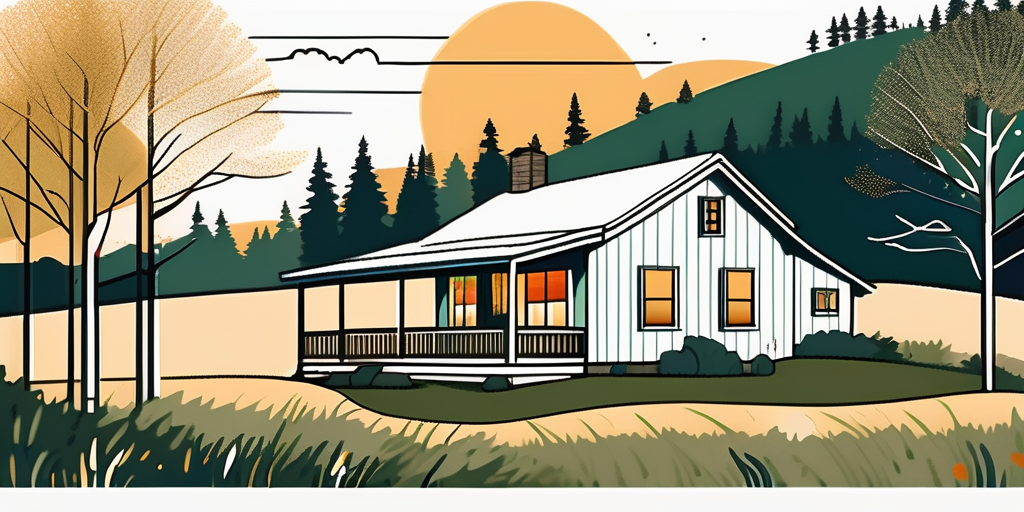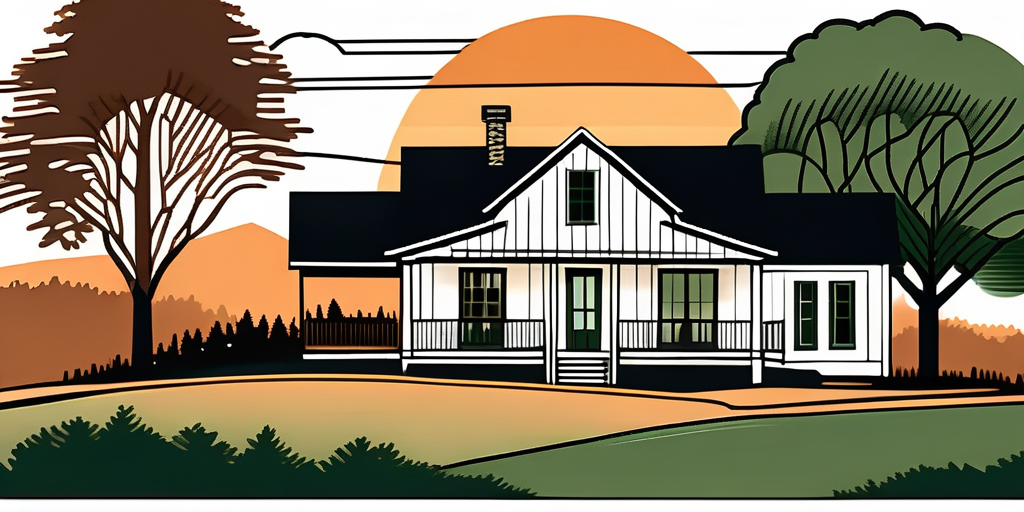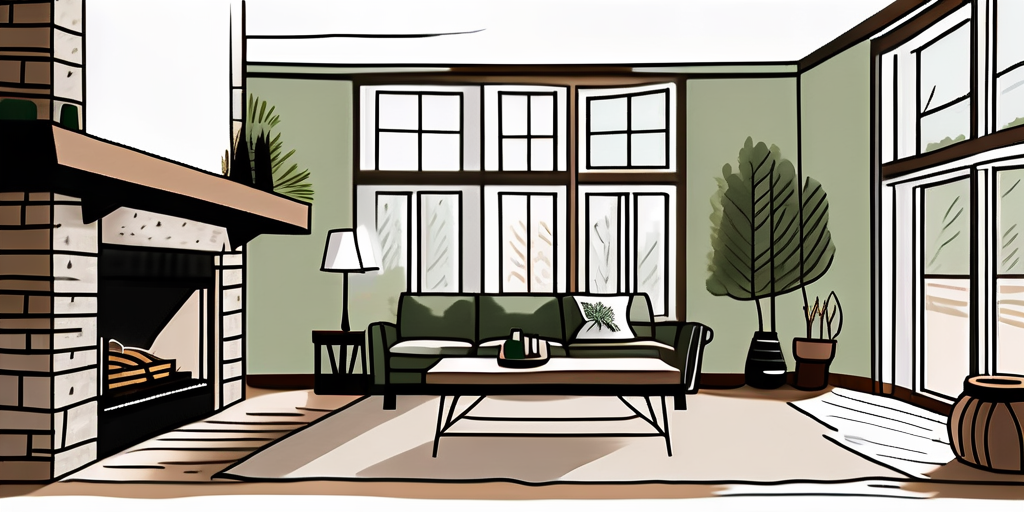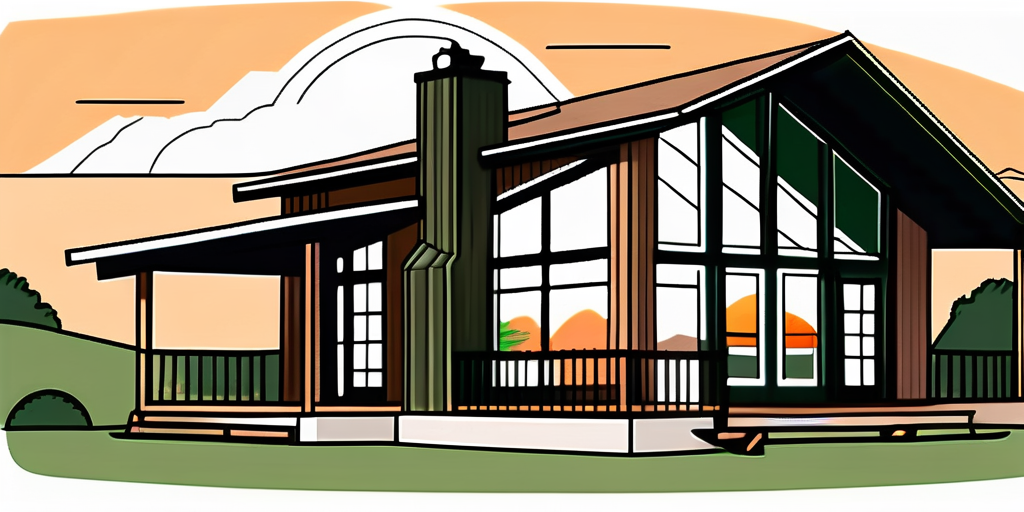
Tennessee rustic homes embody a certain charm that captivates many people. With a unique blend of natural beauty and traditional craftsmanship, these homes resonate with a wide array of individuals seeking a serene lifestyle. In this article, we will explore the appeal of rustic homes, their key features, history, and what it's like to live in one.
Rustic homes hold a special allure for those who appreciate simplicity and a connection to the great outdoors. But what exactly makes them so appealing? Let's break down the components of their charm.
The aesthetic of rustic homes revolves around a welcoming simplicity. Designs are often characterized by clean lines and a lack of ostentation. This simplicity has become a breath of fresh air in today's fast-paced world, offering a retreat from urban life.
Many find solace in the understated beauty of raw wooden beams, stone fireplaces, and open spaces. It invites tranquility and encourages a decluttered lifestyle, making interior design stress-free and enjoyable. The use of natural materials not only enhances the visual appeal but also promotes sustainability, as homeowners increasingly seek to reduce their environmental footprint. Elements such as reclaimed wood and locally sourced stone not only tell a story of their origins but also add a unique character to each home, ensuring that no two rustic spaces are ever the same.
One of the most significant aspects of rustic homes is their strong connection to nature. Located amidst Tennessee's breathtaking landscapes, these homes often incorporate large windows that invite the outdoors in. Sitting on a porch, watching the changing seasons, offers a profound appreciation of the environment.
Additionally, many rustic homes feature design elements that blend seamlessly with their surroundings, using materials like wood and stone. This connection fosters a sense of peace and serenity, allowing residents to feel rooted in their natural habitat. Outdoor living spaces, such as patios and gardens, further enhance this bond with nature, providing areas for relaxation and social gatherings. Imagine sipping coffee while surrounded by the sounds of chirping birds and rustling leaves, or hosting a barbecue with friends under the stars—these experiences are integral to the rustic lifestyle, enriching daily life with a sense of harmony and belonging.
For many, rustic homes evoke feelings of nostalgia and comfort. They remind people of simpler times when families gathered around a fire or shared stories on porches. The traditional craftsmanship involved in building these homes adds an element of history and pride.
The warmth of timber and the unique character of handmade details create spaces that feel lived-in and inviting. It’s this comforting atmosphere that continues to attract people to rustic living in Tennessee. Furthermore, the design often incorporates heirloom pieces and vintage decor, which not only enhances the rustic aesthetic but also tells the story of the family that resides there. These personal touches, such as a grandmother's quilt or a collection of antique tools, imbue the home with character and history, making it a true reflection of the lives lived within its walls. The blend of past and present creates a timeless quality that resonates deeply with those seeking to create a sanctuary that honors both tradition and individuality.
As we delve deeper into Tennessee rustic homes, let's explore the key features that make them stand out. From architectural elements to interior design choices, each facet plays a significant role in defining rustic aesthetics.
The architecture of Tennessee rustic homes is distinctive and often showcases traditional styles such as log cabins and farmhouse designs. These structures may include gabled roofs, large overhangs, and expansive porches that encourage outdoor living.
Many homes incorporate charming features such as exposed beams, stone chimneys, and even rustic shutters, which not only enhance visual appeal but also contribute to energy efficiency. The use of large windows is also a hallmark of these homes, allowing natural light to flood the interiors while providing breathtaking views of the surrounding landscapes, whether it be rolling hills or serene woodlands.
Natural materials are the backbone of rustic homes. Wood, stone, and clay form the building blocks that make these residences feel connected to the land. The choice of materials can range from locally sourced hardwoods to reclaimed barn wood, ensuring each home has a unique personality.
Moreover, the incorporation of raw materials often leads to energy-efficient designs, promoting sustainability. Homeowners can enjoy the beauty of their surroundings while minimizing their ecological footprint. Many builders also prioritize the use of non-toxic finishes and eco-friendly insulation, further enhancing the home's sustainability credentials while ensuring a healthy living environment.
When it comes to interior design in rustic homes, the emphasis is on comfort and warmth. Colors tend to be earthy and muted, echoing the natural palette found outside. Popular choices include browns, greens, and deep reds that contribute to a cozy ambiance.
Furniture often embraces a handmade feeling, whether it’s a vintage couch adorned with plaid, a reclaimed wood dining table, or handcrafted decor pieces. These elements collectively create spaces that are inviting, perfect for family gatherings or intimate dinners with friends. Additionally, the use of textiles such as wool throws, handwoven rugs, and linen curtains adds layers of texture and warmth, making the space feel even more welcoming. Accents like antler chandeliers or vintage lanterns can also enhance the rustic charm, creating a harmonious blend of functionality and style that reflects the beauty of Tennessee's natural environment.
To appreciate rustic homes fully, it's essential to understand their history. The evolution of these structures has been influenced by the region's culture, climate, and the needs of its inhabitants over time.

Rustic homes in Tennessee date back to early settler days. The pioneers built log cabins using skills passed down through generations, utilizing available resources to create functional and sturdy shelters. These cabins were often simple, designed mainly for practicality, and featured essential living space.
Though modest by today’s standards, early log cabins laid the groundwork for the rustic charm we admire today, reflecting both the ingenuity and resilience of those who called them home. The use of local timber not only provided structural integrity but also connected these homes to the surrounding landscape, creating a sense of harmony between human habitation and nature. Many of these cabins were equipped with stone fireplaces, which served as the heart of the home, providing warmth and a place for families to gather during the long Tennessee winters.
As time progressed, rustic home design began to evolve. Influences from different architectural styles, like Colonial and Craftsman, started to seep into the rustic aesthetic. Homeowners began experimenting with design elements, creating unique homes that tell a story of their own.
Modern rustic homes often blend traditional craftsmanship with contemporary functionality, allowing for a comfortable lifestyle while maintaining the enchanting essence of historical designs. This fusion often includes expansive open floor plans, large windows that invite natural light, and sustainable materials that reflect a growing awareness of environmental impact. Additionally, many contemporary rustic homes incorporate outdoor living spaces, such as porches and decks, which encourage a lifestyle that embraces the breathtaking Tennessee landscape, fostering a deeper connection with the natural world surrounding them.
For those fortunate enough to live in a rustic home in Tennessee, the experience is often deeply fulfilling. The lifestyle associated with these homes is markedly different from urban living, focusing on community and connection. Nestled among rolling hills and lush forests, these homes often feature elements like exposed beams, stone fireplaces, and large porches that invite relaxation and reflection.

Life in a Tennessee rustic home fosters a strong sense of community. Many neighborhoods feature tight-knit groups that bond over shared interests like gardening, outdoor activities, and crafting. Residents typically spend more time outdoors, enjoying nature trails, fishing spots, and scenic views. Seasonal festivals and farmers' markets are common, where locals gather not only to shop but to socialize, share stories, and celebrate the rich culture of the region.
This lifestyle is more relaxed, making it easier to strike a balance between work and leisure. Friendly interactions often occur on front porches or during local events, which creates a welcoming and supportive atmosphere for families. Neighbors often come together for potluck dinners or community clean-up days, reinforcing the idea that everyone plays a role in maintaining the beauty of their surroundings. Children can often be seen playing freely in yards or riding bikes down quiet, tree-lined streets, embodying the essence of a simpler, more connected way of life.
While rustic homes are beautiful, they do require maintenance to preserve their charm. The use of natural materials means that homeowners often need to perform regular upkeep, from sealing wooden surfaces to winterizing plumbing systems. Seasonal tasks, such as gutter cleaning and roof inspections, are essential to prevent damage from the elements, especially given Tennessee's varied weather patterns.
Understanding these maintenance responsibilities is crucial for ensuring a long-lasting home that continues to provide comfort and beauty for years to come. Many residents find joy in these tasks, viewing them as an opportunity to connect with their home and the land it occupies. Some even take pride in using traditional methods and materials, such as hand-splitting wood for the fireplace or planting native species in their gardens, thereby deepening their relationship with the rustic lifestyle and the environment around them.
If you're considering buying or building a rustic home in Tennessee, it’s a journey that can be incredibly rewarding. However, it also requires thorough research and planning to find the right property and design the perfect home.

The Tennessee real estate market for rustic homes has seen a surge in interest. Buyers are increasingly drawn to the picturesque landscapes and affordability compared to other states.
In particular, areas near the Great Smoky Mountains and along the Tennessee River offer prime real estate opportunities. These locations provide the ideal backdrop for anyone looking to embrace rustic living. It’s essential to work with a local real estate agent who understands the market and can guide you to find a home that meets your needs. Additionally, the charm of small towns like Gatlinburg and Townsend, with their rich history and vibrant communities, adds to the allure of investing in rustic properties. Many buyers are not just looking for a house; they are seeking a lifestyle that includes outdoor activities, local festivals, and a close-knit community feel.
Building your own rustic home is an exciting venture, but it does involve careful planning and consideration. Here are some tips to keep in mind:
Building a rustic home can be a labor of love, but the result will be well worth it. You'll have a beautiful sanctuary that reflects your personality and celebrates the stunning Tennessee landscape. Furthermore, consider integrating outdoor living spaces such as porches or decks that allow you to enjoy the natural beauty surrounding your home. These areas can become extensions of your living space, perfect for entertaining guests or simply relaxing with a good book while listening to the sounds of nature.
Another important aspect to consider is the incorporation of local craftsmanship. Tennessee is home to many talented artisans who specialize in woodworking, stone masonry, and metalwork. Collaborating with these skilled craftsmen can not only enhance the aesthetic appeal of your home but also support the local economy. By choosing to work with local professionals, you can ensure that your rustic home is not just a structure, but a true reflection of the culture and heritage of the region.